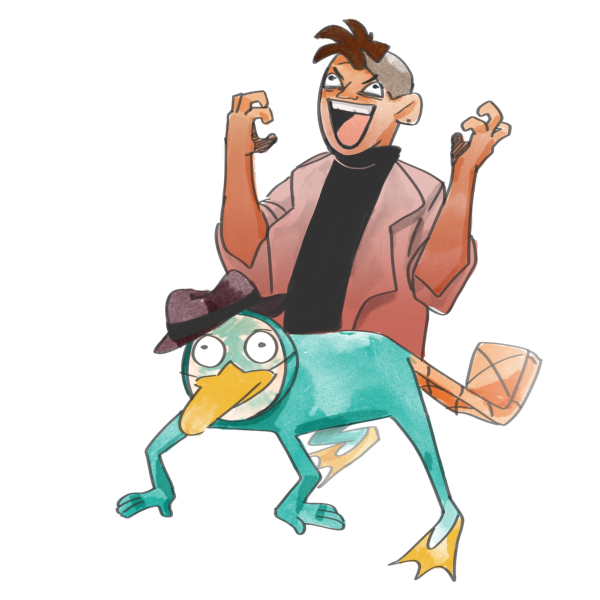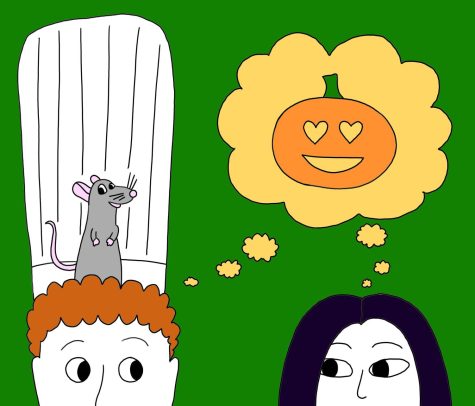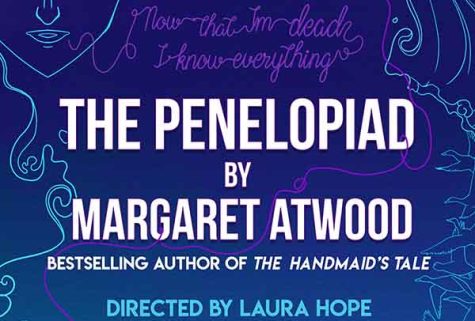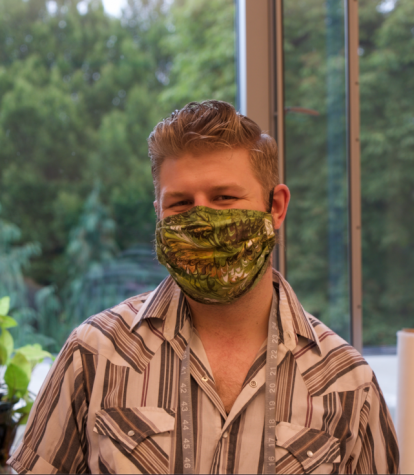Inside Whitman’s creative courses
February 2, 2023

One of the most common ways people poke fun at liberal arts colleges is by joking about the hyperspecificity of courses. Although Whitman’s course catalogue is home to many obscure classes, student and faculty experiences illuminate the value of skill-based, hands-on and interdisciplinary courses. These unique classes allow Whitties to delve into new interests and explore fields that were previously unknown to them in a focused setting.
Assistant Professor of Theater and Costume Director Aaron Chvatal is currently teaching a Costume Construction Course that has reached students both within the theater department and beyond.
“This class is really intended to teach students who have never had a bit of sewing in their life. I anticipate starting from absolute zero, and over the course of the semester building up skills so students can tackle any projects they want in the future,” Chvatal said.
Although some students who take the course end up working for the theater’s costume department in the future, many also take the class for their own personal development. The course centers around skills like hand stitching, using a sewing machine and creating a garment from a pattern, giving students the opportunity to learn more difficult techniques face-to-face in a structured environment.
“Some of the more unusual things we get to talk about are fabric types: What are the different types of fabric? What is their fiber content? How might [each fabric] react differently to different projects?” Chvatal said. “That is something [students] may not be able to learn from YouTube videos. They may not be able to touch those fabrics, to see what they feel like in their hands and how they drape and move.”
For Visiting Assistant Professor of Music Joseph Kemper, the specialized skill-base of the Beginning Conducting course opens pathways to broader experiences.
“The first and foremost [priority] is to develop [the students’] leadership and communication skills in front of a group of people,” Kemper said. “While we’re learning about highly specific and specialized musical gestures and approaches, at the end of the day, the large lesson is how to work with others and how to communicate effectively.”
The hands-on experience of rehearsing with volunteer musicians makes the conducting class exercises perfect stepping stones to further exploration.
“There is so much work that goes into deeply learning a piece of music by a conductor before it is handed out to the ensemble. Part of our semester is unraveling this complex behind-the-scenes process,” Kemper said.
Even in courses that aren’t centered around a specific skill set, professors find innovative ways to engage students through unconventional projects.
In Ethnobiology of the Silk Road, taught by professors Heidi Dobson and Brian Dott, students explore the history of peoples along the trading routes across Asia, focusing on pre-1400s China. Sophomore Morgan Sherwood described her excitement about a future project where herself and her classmates will be challenged to create a dish using ingredients that would have only been found on the Silk Roads during the time period the class is studying.
Piper Brown mentioned her anticipation for a different upcoming assignment that will engage the senses.
“Later in the semester we’re going to sample teas from China. I love tea, so I’m pretty excited about that ‘lab’ and being able to try out some new varieties,” Brown said.
From the class’ inception, professors of unique courses put in the effort to impart their knowledge onto students in an engaging way, helping to connect the content of their class to other fields of study.
“I’ve never had a class taught by two professors. I know that’s not a rarity at Whitman but personally I’ve never had the opportunity. Both Professor Hobson and Professor Dott are very passionate about the subject. As well studied they are in their particular departments, they play off of each other’s knowledge well too, and the class overall is very cohesive,” Brown said.
Sherwood agreed, explaining that the interdisciplinary nature of the course was particularly illuminating to her.
“In addition to learning about a topic I knew nothing about before, I also will start to see more direct connections between biology and history,” Sherwood said. “[I] think that’s something I can take to other courses, as well.”
By offering courses beyond the basics, Whitman professors demonstrate their dedication to a truly interdisciplinary approach to the liberal arts.








